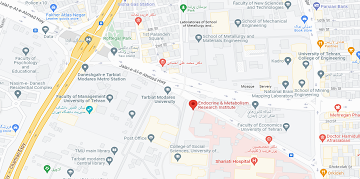A short-term economic evaluation of early insulin therapy compared to oral anti-diabetic drugs in order to reduce the major adverse events in type 2 diabetes patients in Iran
While there are some recommendations about early insulin therapy in newly diagnosed Type 2 Diabetes Mellitus (T2DM) patients, there is not sufficient evidence on this strategy's cost-effectiveness. This study compared early insulin therapy versus oral anti-diabetic drugs (OADs) for managing T2DMusing a cost-effectiveness analysis approach in Iran.
Abstract
Objective: While there are some recommendations about early insulin therapy in newly diagnosed Type 2 Diabetes Mellitus (T2DM) patients, there is not sufficient evidence on this strategy's cost-effectiveness. This study compared early insulin therapy versus oral anti-diabetic drugs (OADs) for managing T2DMusing a cost-effectiveness analysis approach in Iran.
Methods: In this economic evaluation, a decision analytic model was designed. The target population was newly diagnosed type 2 diabetic patients, and the study was carried out from the perspective of Iran's healthcare system with a one-year time horizon. Basal insulin, Dipeptidyl peptidase-4 (DPP-4) inhibitors, and Thiazolidinediones (TZDs) were compared in this evaluation. The main outcome for assessing the effectiveness of each intervention was the reduction in the occurrence of diabetes complications. Strategies were compared using the incremental cost-effectiveness ratio (ICER), and deterministic and probabilistic sensitivity analyses were carried out.
Results: The DPP-4 inhibitors strategy was the dominant strategy with the highest effectiveness and the lowest cost. Early insulin therapy was dominated (ICER: $-53,703.18), meaning that it was not cost-effective. The sensitivity analyses consistently affirmed the robustness of the base case findings. The probabilistic sensitivity analysis indicated probabilities of 77%, 22%, and 1% for DPP-4 inhibitors, TZDs strategies, and early insulin therapy, respectively, in terms of being cost-effective.
Conclusion: In terms of cost-effectiveness, early insulin therapy was not cost-effective compared to OADs for managing newly diagnosed T2DM patients. Future studies in this regard, utilizing more comprehensive evidence, can yield more accurate results.
Keywords: Cost-effectiveness; Early insulin therapy; Iran; Type 2 diabetes mellitus; oral anti-diabetic drugs.




ارسال به دوستان